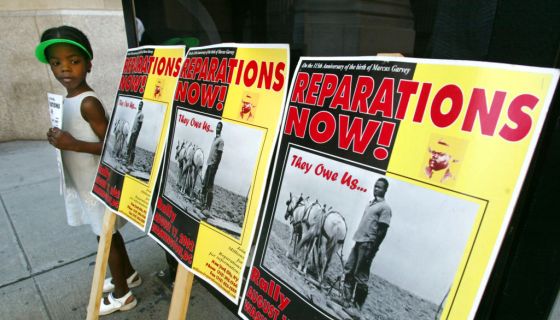Although San Francisco is a fairly liberal city, the plan to give descendants of slaves reparations has been met with an abundance of pushback.
Stanford University’s Hoover Institution has estimated that a big idea like this would cost every non-Black family in the city at least $600,000. Others claim the city can not afford reparations payments, citing the tech industry downturn as the reason the city doesn’t have the funds. Others have also stated that since San Francisco wasn’t a city that had slaves, Black residents shouldn’t be eligible for reparations.
But some supervisors on the committee, although surprised by their colleagues’ ignorance, say racist policies continue to keep Black Americans down.
“Those of my constituents who lost their minds about this proposal, it’s not something we’re doing or we would do for other people. It’s something we would do for our future, for everybody’s collective future,” Supervisor Rafael Mandelman told ABC News.
Even though many of the reparations recommendations were supported by the board, it doesn’t mean they will be adopted. Each recommendation will be voted on and can be approved or rejected. A final report is expected to be released in June.
The San Francisco reparations plan will set the stage for how reparations could be handled at the federal level.
“I don’t need to impress upon you the fact that we are setting a national precedent here in San Francisco,” said Tinisch Hollins, vice-chair of the African American Reparations Advisory Committee. “What we are asking for and what we’re demanding for is a real commitment to what we need to move things forward.”
Currently, California is pushing the topic into the spotlight with its state-backed reparations task force committee.
In 2020, Gov. Gavin Newsom signed legislation to begin a two-year exploration and hopefully a solid plan on what reparations might look like for Black Americans living in the Golden State. The initiative was also designed to reflect on slavery’s harsh past and its current effect on Black Americas living in the United States. Committee members are expected to deliver a final reparations proposal by July.
Polling shows that 77% of Black Americans support reparations to descendants of enslaved people while 17% of white people do not.
SEE ALSO:
Here’s Everything We Know About California’s Reparations Task Force Initiative
40 Acres And A Mule: What Are Reparations And Why Is The Concept So Polarizing?



